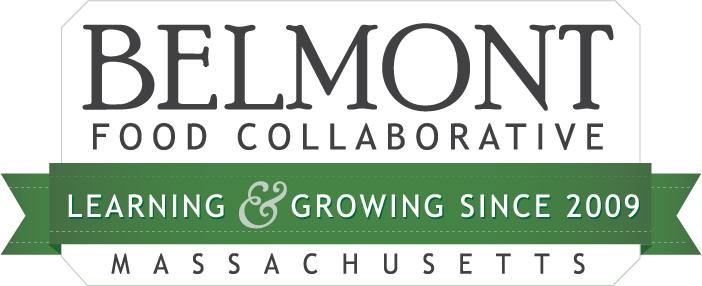Our history
In December of 2010, the Collaborative achieved 501(c)(3) status from the Internal Revenue Service. The board and volunteers received much appreciated pro bono support from the law firm of Weil, Gotshal & Manges LLP, which also helped establish the Collaborative in 2009. Because of the 501(c)(3) status, donors can make tax-deductible gifts to the Collaborative to support its community education efforts and participation in food distribution programs for neighbors in need, as well as to the Market itself.
Achieving 501(c)(3) status involved considerable hard work, the majority of which came in the form of thinking through and writing out some 20 pages of purpose and goals to meet the very strict requirements of the IRS. After the submission, there was an intensive response to IRS follow-up inquiries. “We couldn’t have done it without the help of Weil, Gotshal,” said Anne Stuart, a board member and active participant in setting up the Collaborative. Russell Stein, attorney at the law firm, said, “We were grateful for the opportunity to help this organization—they go way beyond what a typical farmers’ market does.”
David Webber, program coordinator of the Massachusetts Department of Agricultural Resources, observed that the Belmont Farmers’ Market joined the ranks of other 501(c)(3) groups like the Boston Public Market, which works to build a year-round market in the city, and the Federation of Massachusetts Farmers Markets.
From the start, we’ve wanted to increase education about food and nutrition, and to help families in need get fresh produce. To really do those things right we’ve needed fundraising—which you can only do effectively if donors can deduct their gifts.
Anne Stuart, BFC Director
Since its opening in 2006, the volunteer-run Belmont Farmers’ Market has provided a wide variety of educational outreach. Heli Tomford, who led the initiative to develop the Market, described these activities: “We distributed the Roots & Sprouts newsletter to the schools, senior center, and library. The Market’s web site and e-mail newsletter, appearances by local chefs at the Market, and movies at the town library are things we’ve had in place from the start. We hoped to offer classes and workshops on backyard growing, preparing and preserving foods, and healthy eating. We also want to build more awareness about sustainable approaches to food production. And we’re always open to new ideas!”
Educational opportunities abound at the Market. Tomford points out that the Flats Mentor Farm stall, with its abundance of Asian greens, not only serves a particular clientele, but also opens a whole new world of nutritious vegetables for other shoppers to explore. And she sees the live music each week as yet another form of education. “It’s a safe and encouraging performance venue. This activity started the first market year when two young violinists asked to play. They performed year after year! It’s been great to watch them grow as musicians.”
What else falls under the Collaborative’s umbrella? We ran the Pomona Project—named for Pomona, the Greco-Roman goddess of fruitful abundance pictured at the center of the town seal. The project made available, at cost, fruit bushes and ground covers for local growing. “The project builds on the town’s history as a well-known market gardening community,” said Tomford, “so it’s educating about history as well as edible landscapes.”
Other activities of the Collaborative include building a strong relationship with Belmont businesses, town departments, and community organizations. Restaurants in particular have been lively participants at the Market. The Belmont Public Library brings a pop-up library to the Market every month, and librarians read aloud at Storytime in the summer months. After Labor Day, Belmont Books takes over Storytime, reading to our youngest shoppers! The Community Table at the Market provides space for local organizations and town departments to meet shoppers, educating shoppers about everything from birds you can see at Habitat to electric sustainability and recycling.
From the beginning, the Market has connected to the Belmont Food Pantry by collecting non-perishable items on market day, and, working with Boston Area Gleaners and the Pantry to provide fresh produce to those in need. At the end of each market day, the Boston-area organization Food for Free picks up unsold fresh food for distribution to soup kitchens, food banks, shelters, and pantries.
With its 501(c)(3) status, the Collaborative may apply for grants from foundations as well as receive tax-deductible donations. “It’s so helpful to be able to increase our donations,” said Stuart. “Our tents are getting old, and our tables and supplies are beginning to wear out. And with growing donations, we’ll be able to do more to get food to people in need.”
You can help our work by making a donation.
This is adapted from an article written by Jane Sherwin, published in the spring 2011 issue of Roots & Sprouts.
